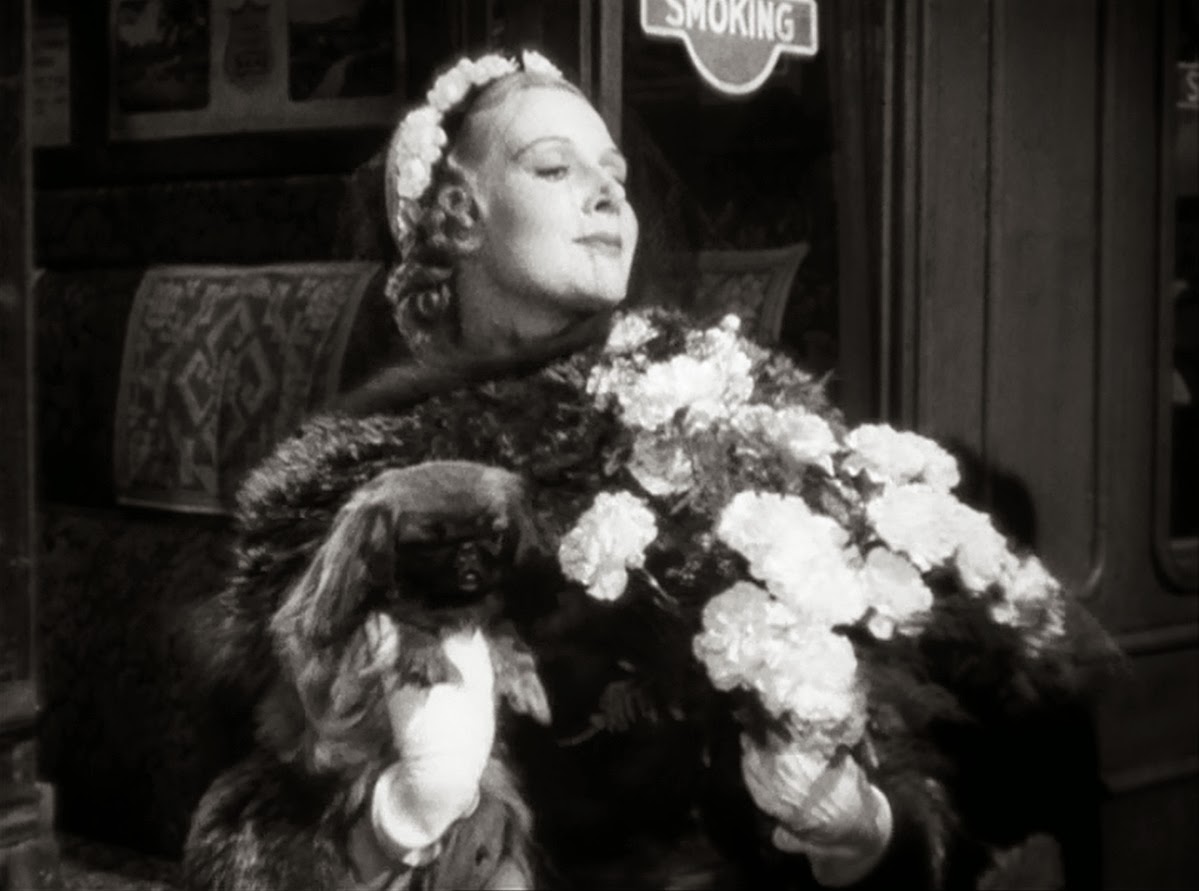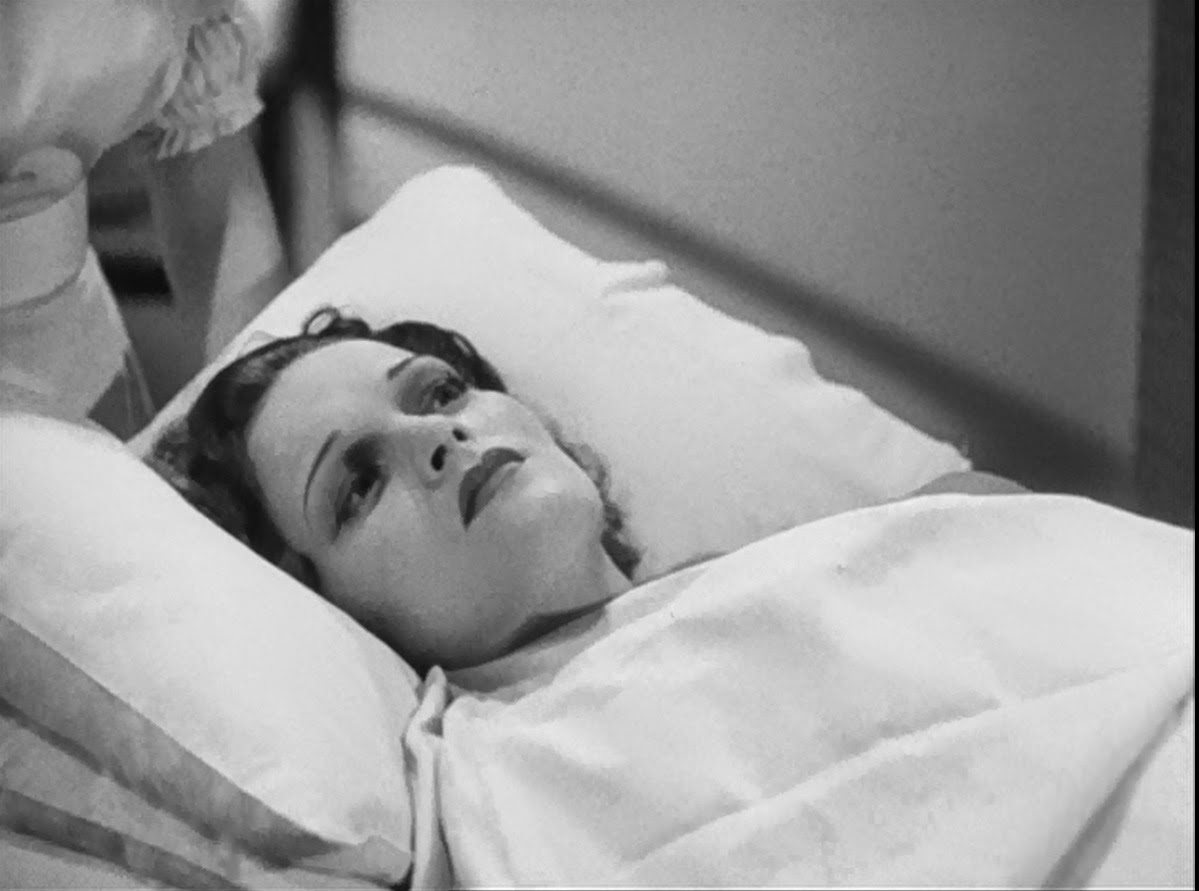Bank Holiday (1938)
When we think of the traditional British Bank Holiday what comes to mind?
The rush to escape from work ...
... the crowds at the railway stations ...
... the even bigger crowds at the seaside ...
... the drunks spilling out of pubs ...
... the inevitable fights ...
... and, of course, the rain!
That's right: All the ingredients are here in this odd little film about an unmarried couple planning what used to be known as a 'dirty weekend' at the seaside.
The couple in question are a nurse, Catherine Lawrence (Margaret Lockwood) ...
 |
| Margaret Lockwood |
 |
| Hugh Williams |
 |
| Hugh Williams and Margaret Lockwood |
The morals of their planned weekend away together (signing into the hotel as Mr and Mrs Smith) are a sign of the times. As Cathy tells a surgeon at the hospital:
"You never know what might happen in the world nowadays. You've got to try and be happy while you can."
Her words reflect a world that was just one year away from war.
However, her world is turned upside down before she leaves for the weekend when a woman dies in childbirth, leaving a grieving husband (John Lodge) to cope all alone over the holiday.
 |
| Margaret Lockwood |
 |
| John Lodge |
The film also offers us an opportunity to see Margaret Lockwood in a bathing suit ...
 |
| Margaret Lockwood |
 |
| Hugh Williams and Margaret Lockwood |
Whilst Cathy and Geoff play out this serious story line, the film offers the light relief of Doreen (Rene Ray) and Milly (Merle Tottenham) who have travelled to the seaside where Doreen is set to compete as 'Miss Fulham' in a beauty contest.
 |
| Rene Ray and Merle Tottenham |
By contrast, Dorothy's rival is 'Miss Mayfair':
 |
| Jeanne Stewart |
If that isn't enough to convince the audience of her nature, we her with a succession of men, each older - and more prosperous - than the last. When she walks over a grating on the pier, Dorothy and Milly look up and are shocked by what they see:
 |
| Rene Ray and Merle Tottenham |
"She ought to be ashamed of herself!"
The inference is clear, Miss Mayfair isn't wearing any underwear!
During the contest 'Miss Mayfair' steals the limelight from her more low key competitors:
 |
| Jeanne Stewart |
... so impressed that he takes her home with him!
This film is one of the curious little gems of British cinema: largely forgotten but fun in the comic sequences and Carol Reed directs the scenes featuring the bereaved husband with a genuine flair in what was his sixth of more than thirty films. The problem lies with the balance between the comic sequences and the more serious scenes. Furthermore, despite the familiarity of the Bank Holiday scenes, the treatment of the bereaved father seems rather dated: his child has survived the death of the mother. Yet, when he announces that he will never see the child, no one bats an eyelid. They simply carry on as if such lack of emotion for a child is normal. And maybe audiences failed to feel sympathy for Cathy in her treatment of Geoff. She leaves her fiancée (a man who is clearly passionate) for a man she hardly knows. Indeed, he seems a rather cold fellow who is grieving for a wife he never even shared a bed with:
As a counter argument, you could say that Cathy is right to leave Geoff to be with a respectable man who, unlike Geoff, doesn't seem to think the world revolves around getting Cathy into bed.
 |
| Hugh Williams |
So who else do we see in Bank Holiday?
 |
| Ernest Sefton |
 |
| Kathleen Harrison |
 |
| Linden Travers |
 |
| Michael Rennie (left) in an early uncredited role |
 |
| Wally Patch |
 |
| Wilfred Lawson & Garry Marsh |
It's currently available on DVD as part of a box set, also featuring: The Wicked Lady, The Lady Vanishes and Love Story. Not bad value for £13!













Good film; I last watched it some years ago but liked it. Interesting comments about the London areas! (See London Town for similar social change in 'The Ampstead Way')
ReplyDelete